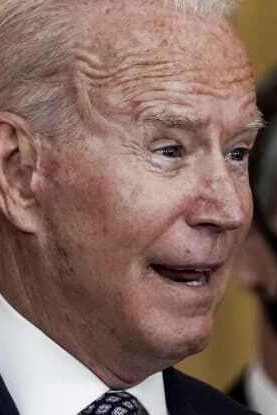Commentary
On Tuesday, making his first appearance before the UN Security Council as president, Joe Biden found himself in the embarrassing position of attempting to restore America’s diplomacy following a series of his foreign policy screw-ups.
Telling other leaders of the need to work together for “our security, our prosperity and our very freedoms as never before,” his appearance, in what was termed his most high-profile moment on the world stage since assuming office, came as many leaders have expressed skepticism of the United States in recent months.
The left-leaning NPR was critical of Biden’s foreign policy in a piece headlined, “Biden Says ‘America’s Back:’ The World Has Some Questions.”
From the beginning, even during his campaign, he pledged to restore America’s international standing, touting his years of foreign policy experience.
I think you’ll find this timeline interesting.
On February 4, 2021, Biden told members of the State Department, “America is back. America is back. Diplomacy is back at the center of our foreign policy. We must start with diplomacy rooted in America’s most cherished democratic values: defending freedom, championing opportunity, upholding universal rights, respecting the rule of law, and treating every person with dignity. That’s the grounding wire of our global policy.
America’s alliances are our greatest asset, and leading with diplomacy means standing shoulder to shoulder with our allies and key partners once again. That’s why we’ve moved quickly to begin restoring American engagement internationally and earn back our leadership position, to catalyze global action on shared challenges.
On June 13, 2021, speaking at the meeting of G7 leaders in Cornwall. England, Biden said, “The only way we’re going to meet the global threats is by working together, and with our partners and allies. The United States is going to do our part. America is back at the table. America is back at the table.”
But on August 24, 2021, Biden clashed with some of its closest allies over his decision to stick to his August 31, 2021 Afghanistan withdrawal. During virtual talks with G7 leaders – his new buddies – Biden said the U.S. would stand shoulder to shoulder with them in future action over Afghanistan and the Taliban.
In a partial show of unity, G7 leaders agreed on conditions for recognizing and dealing with a future Taliban-led Afghan government, but there was palpable disappointment Biden would not extend the U.S. operation at the Kabul airport to ensure that those from all countries could be evacuated, according to AP.
“Biden and the White House has come under fire for its handling of the withdrawal of troops from Afghanistan, a chaotic and deadly process that has spurred criticism and concern even from his allies in the U.S. and internationally.” CNBC
On August 29, 2021, with the August 26, killing of 13 Americans and injuring many others at the Kabul airport gate obviously weighing heavily on Biden, he ordered a drone hit on an automobile in Kabul that the military believed was slated to be used in another airport hit. It was seemingly an attempt by Biden to show the so-called “over-the-horizon” ability of the U.S. to target terrorists in Afghanistan. The Pentagon called it a “righteous” event. By September 17, 2021, however, the Pentagon was forced to fess-up that the hit was a mistake. That “mistake” resulted in 10 civilian deaths, including seven children.
On September 15, 2021, Biden announced a deal with Britain and Australia to share advanced technologies leading to Australia’s acquisition of eight nuclear-powered submarines. In the process, American became an accomplice in Australia’s abandonment of a $90 billion sub deal with France. Design changes and cost increases hung over the French program for several years.
Two days later, America’s oldest ally. France, recalled its ambassador to the United States in what the Associated Press called “an unprecedented show of anger that dwarfed decades of previous rifts.” France also recalled its envoy to Australia. Recalling ambassadors is highly unusual between allied countries.
French President Emmanuel Macron referred to the decision as “unacceptable behavior between allies and partners.”
French Foreign Minister Jean-Yves Le Drian denounced the deal referring to “duplicity, disdain and lies,” while questioning the strength of the alliance.
In his speech at the UN Tuesday, Australia, France and even Afghanistan were barely mentioned. Much of it consisted of the role he said the U.S. will play in closing out the Covid pandemic and preparing for the next, and, of course, climate change, where he plans to double our financial obligation to developing nations.
Speaking of climate change, Biden again lied by saying, “we will suffer the merciless march of ever-worsening droughts and floods, more intense fires and hurricanes, longer heatwaves and rising seas.”
“Biden really does have to convince other leaders that he has a grip on U.S. domestic politics.” – Richard Gowan, UN director of the Crisis Group
I wonder what the leaders in attendance were thinking when Biden said:
“Over the last eight months, I have prioritized rebuilding our alliances, revitalizing our partnerships, and recognizing they’re essential and central to America’s enduring security and prosperity.”
I viewed it as a back-handed mea culpa for the foreign policy disasters caused while his hand was at the helm, during which the advice of allies and partners were not considered.
It was only in the short period of writing his speech – not eight months – that he came up with his declaration of a “new era” of U.S. diplomacy, recognition that diplomacy needed to be restored, and, in fact, Biden’s America is not back.
Now, more than ever … may God continue to bless the United States of America.






